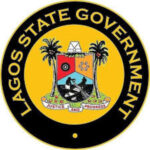Niger Governor, Mohammed Umaru Bago, has called for the establishment of a comprehensive national agenda aimed at achieving food sovereignty and long-term agricultural sustainability in Nigeria.
Governor Bago made the call while speaking at the 2025 World Food Day celebration hosted by the Nigerian Institute of International Affairs (NIIA) in Victoria Island, Lagos. The event, themed “Food Security to Food Sovereignty: How Far Has Nigeria Gone?”, assessed the nation’s progress in building resilient and sustainable food systems.
The governor emphasized the need for Nigeria to move beyond food security to food sovereignty, stressing that food sovereignty would allow the country to control how food is produced, distributed, and consumed.
“With political will and a clear strategy, we can accomplish even more,” he said, noting that past policy interventions, such as import restrictions, had boosted local poultry production.
Bago proposed a five-point framework for a national food sovereignty strategy, which includes:
Adopting modern, climate-smart agricultural practices;
Reducing post-harvest losses through improved storage and processing;
Providing accessible credit and inputs for genuine farmers;
Securing farms and rural communities against insecurity; and
Aligning agricultural policies with long-term national development goals rather than political cycles.
While acknowledging government efforts in the agricultural sector, the governor expressed concern over persistent hunger and malnutrition, attributing them to over-reliance on food imports and limited investment in the livestock and value chain subsectors.
He called for strategic investments in cattle breeding, pasture development, and post-harvest management, which he said were essential to achieving genuine self-sufficiency and food sovereignty.
Highlighting his administration’s initiatives in Niger State, Governor Bago listed large-scale mechanisation, irrigation expansion, and value-chain development as key priorities. He also cited partnerships with Brazil under the Livestock Modernisation Project and with AfricaRice on climate-resilient seeds and modern farming technologies.
Additional investments, according to him, include the deployment of thousands of tractors, a ₦1.8 trillion rice production agreement with Dangote Rice Limited, and a cotton development partnership with the Republic of Benin — all aimed at improving local processing, job creation, and regional trade.
Addressing the impact of climate change, the governor lamented the destruction caused by flooding across Niger and other states and revealed that the state is collaborating with the World Bank through the ACReSAL Project to strengthen climate resilience, irrigation infrastructure, and early warning systems.
In his closing remarks, Governor Bago called for stronger collaboration among government agencies, research institutions, the private sector, and development partners to ensure Nigeria can not only feed itself but also contribute significantly to food security across Africa.
WATCH TOP VIDEOS FROM NIGERIAN TRIBUNE TV
- Relationship Hangout: Public vs Private Proposals – Which Truly Wins in Love?
- “No” Is a Complete Sentence: Why You Should Stop Feeling Guilty
- Relationship Hangout: Friendship Talk 2025 – How to Be a Good Friend & Big Questions on Friendship
- Police Overpower Armed Robbers in Ibadan After Fierce Struggle






